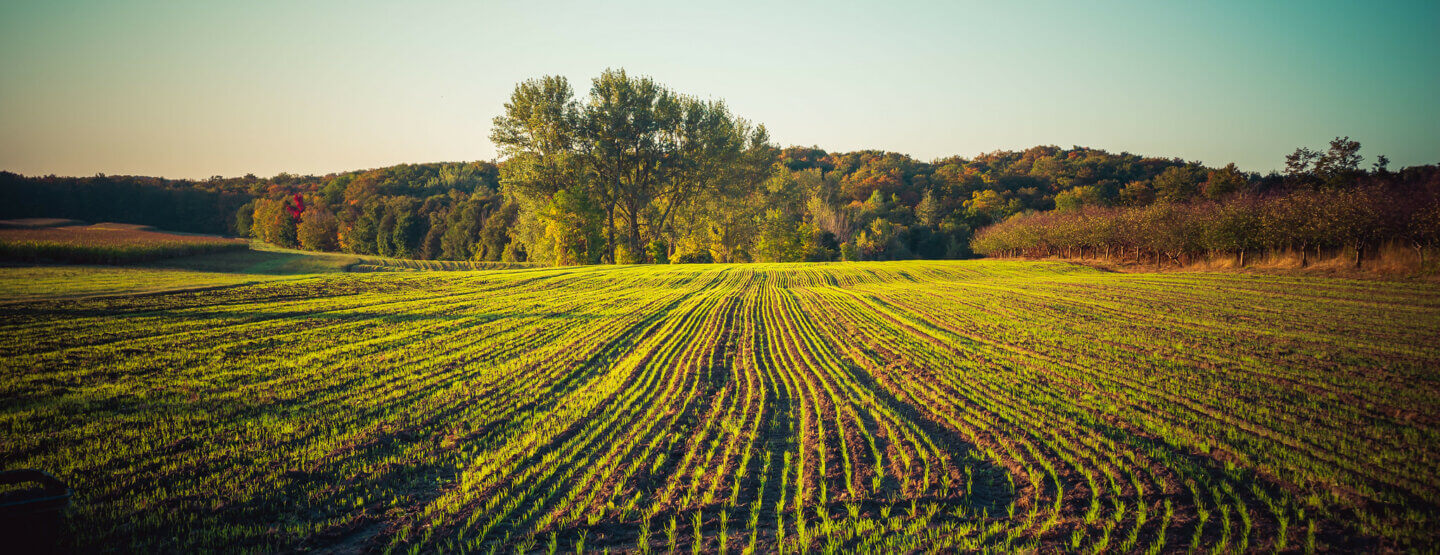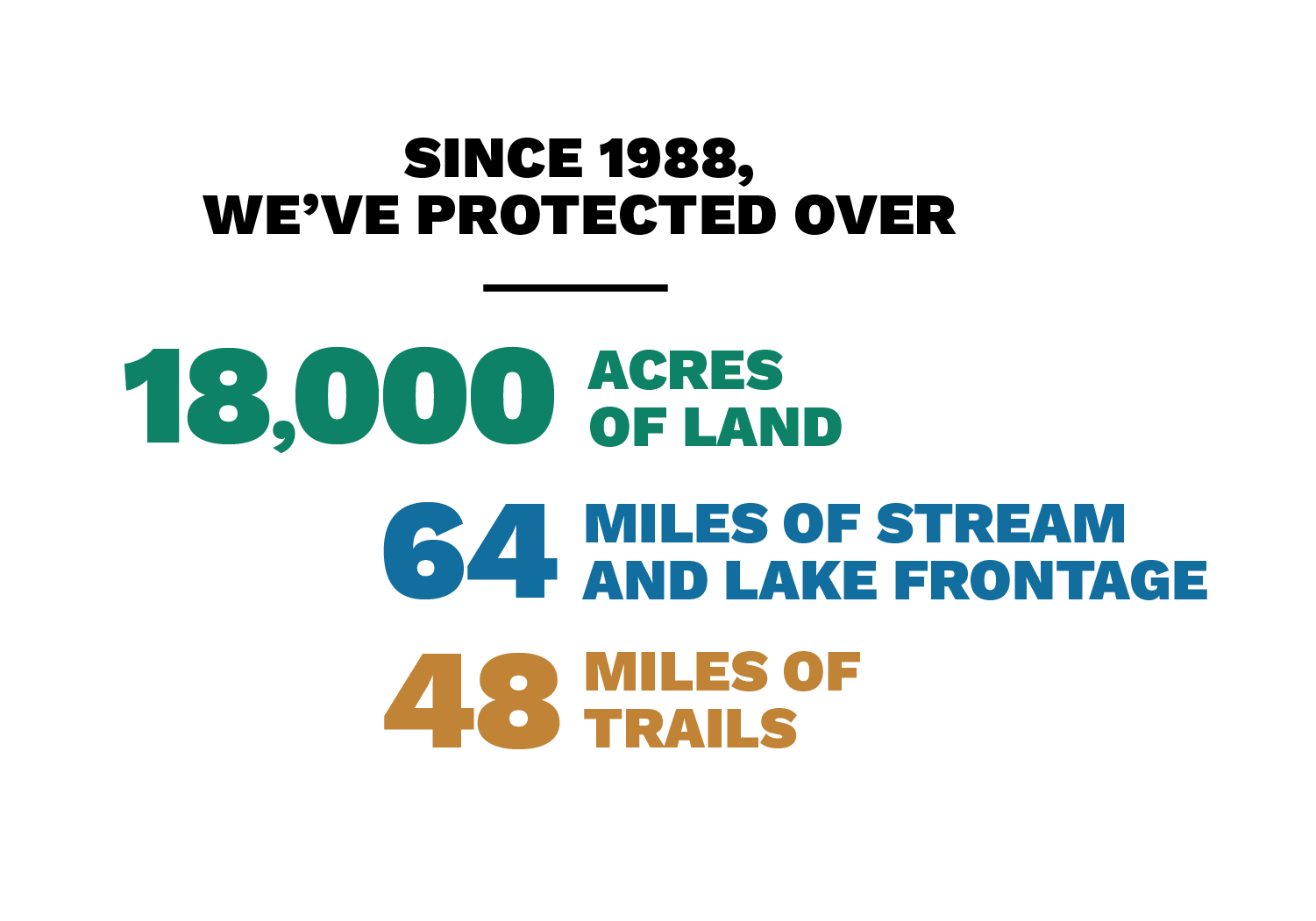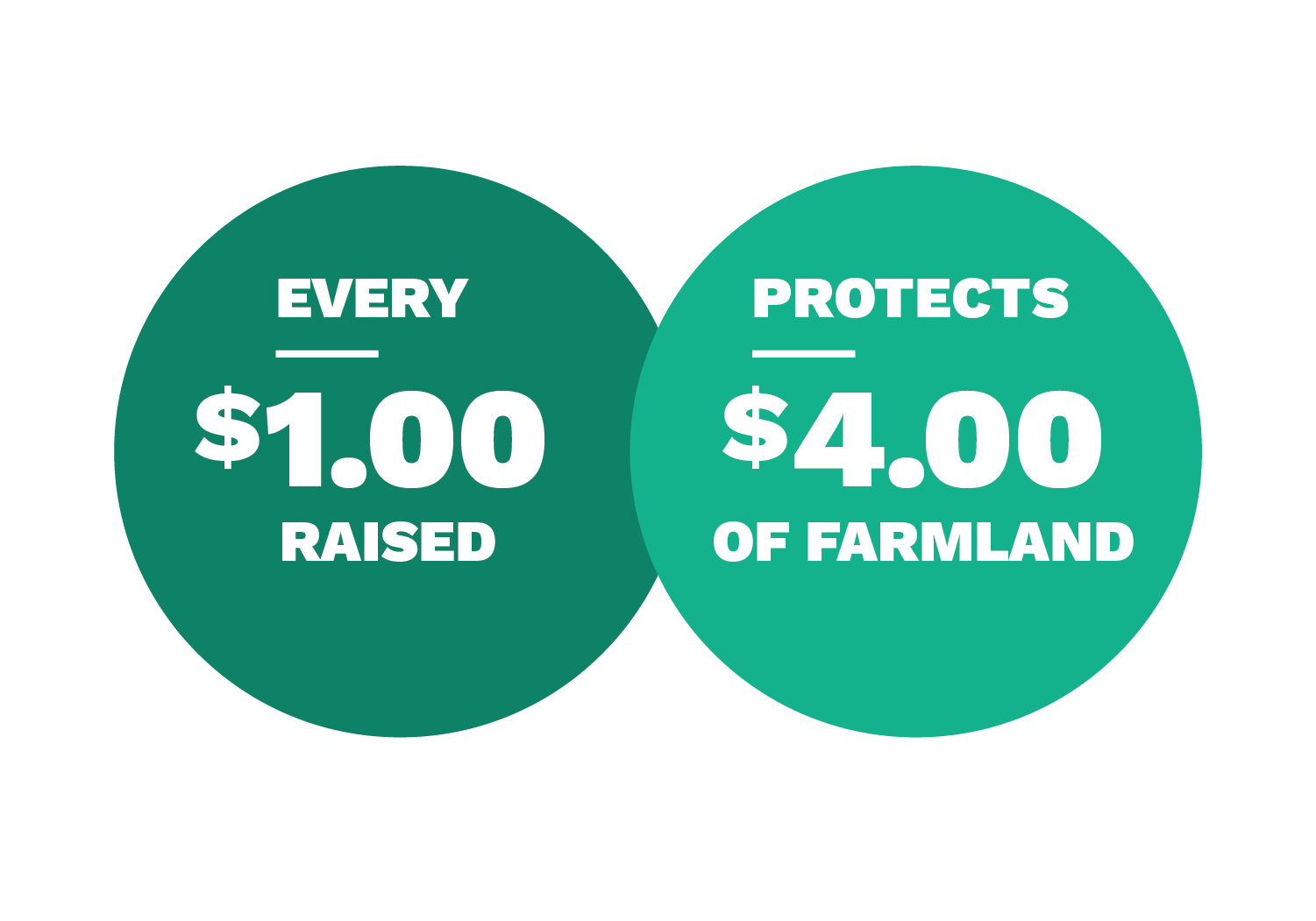Agriculture is an important part of the fabric of Leelanau County, providing pastoral scenery while being an important contributor to the local economy. Our wineries and farm markets are a nice complement to our tourism industry. The Leelanau Conservancy recognizes the importance of maintaining our productive farmland and the farm community. For many years the Conservancy has been working with farmers who are interested in preserving land for future generations of farmers. This past year we were able to preserve an additional 329 acres of farmland through either the purchase or donation of conservation easements. We currently have more interest from farmers than ever before.
Leelanau’s deep, well-drained soil and rolling topography situated on a peninsula on the eastern shore of Lake Michigan provide the unique combination of factors that make it such a productive site for very diverse agriculture. Lake Michigan warms our climate in the winter which helps protect fruit crops from cold injury, cools in spring to delay fruit bud development, cools on hot summer days and delays the first frosts in fall. It is this unique combination that has allowed farmers to grow several types of fruit, as well as raise corn, hay, small grains and livestock.
Farming in Leelanau County has its ups and downs with challenges that vary from year to year and over time. We have seen agriculture evolve and change with advances in science and technology. The predominant commodities produced in the county have also changed and will continue to do so.
I cannot predict what farming in Leelanau will look like in the future, but I can be certain that it will continue to evolve. An apple orchard planted in the 1950’s would have had about 60 trees per acre and required tall ladders to harvest. An apple orchard planted today would likely have about 1,000 trees per acre planted on dwarfing rootstocks and supported with a trellis. Growing wine grapes in northern Michigan was unheard of until Bernie Rink planted a test vineyard in the 1960’s and now grapes adorn hillsides and wineries host thousands of visitors.
Over time, crops change due to shifts in markets, technology, and economics. To help keep pace with these changes, farmers continue to invest in agricultural research. We are fortunate in Leelanau to be home to one of the research centers operated by Michigan State University that serve the fruit industry. It is an investment that pays dividends for both the present and future of local agriculture.
There is one thing that has not changed for farmers and that is the need for good farmland. If the farmer is planning to use the land to grow fruit, then the land also needs to have good air drainage which means the sites available become even more limited. The reality is that the demand for land in Leelanau County for non-agricultural use can often price land out of reach for farmers. Establishing a Conservation Easement (CE) helps assure that the land will be available for agriculture.
So why would farmers be interested in establishing a CE if it may mean selling the farm for less? Obviously, there are multiple reasons, but there is one common thread. Every farmer in Leelanau who has signed a CE has done it at least in part because they want to see the land remain in agriculture for generations to come. I am confident of this because all CE’s require that the farmer make at least a 25% donation of the CE value. Maybe they do it because of a love and respect for the land, or maybe it’s sort of a way to pay forward to future generations of farmers and the community they support. But whatever the reason, establishing a conservation easement, like investing in research, is a tool that the current generation of farmers has available to help ensure the continuation of agriculture as an important contributor to the county we all love.
It is truly gratifying to be a part of an organization that is making a real difference in the lives of current farm families while doing the work to help preserve the future of agriculture in one of the most unique production areas in the world.
Jim Nugent
Board Chair




